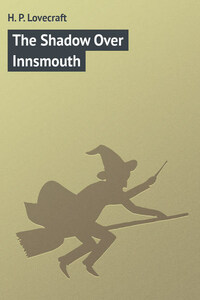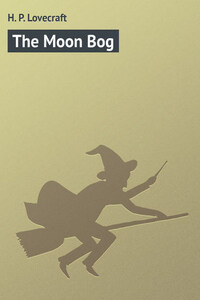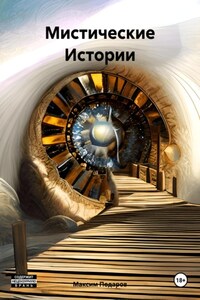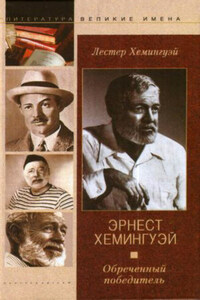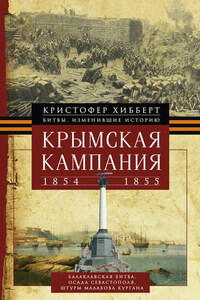During the winter of 1927—28 officials of the Federal government made a strange and secret investigation of certain conditions in the ancient Massachusetts seaport of Innsmouth. The public first learned of it in February, when a vast series of raids and arrests occurred, followed by the deliberate burning and dynamiting – under suitable precautions – of an enormous number of crumbling, worm-eaten, and supposedly empty houses along the abandoned waterfront. Uninquiring souls let this occurrence pass as one of the major clashes in a spasmodic war on liquor.
Keener news-followers, however, wondered at the prodigious number of arrests, the abnormally large force of men used in making them, and the secrecy surrounding the disposal of the prisoners. No trials, or even definite charges were reported; nor were any of the captives seen thereafter in the regular gaols of the nation. There were vague statements about disease and concentration camps, and later about dispersal in various naval and military prisons, but nothing positive ever developed. Innsmouth itself was left almost depopulated, and it is even now only beginning to show signs of a sluggishly revived existence.
Complaints from many liberal organizations were met with long confidential discussions, and representatives were taken on trips to certain camps and prisons. As a result, these societies became surprisingly passive and reticent. Newspaper men were harder to manage, but seemed largely to cooperate with the government in the end. Only one paper – a tabloid always discounted because of its wild policy – mentioned the deep diving submarine that discharged torpedoes downward in the marine abyss just beyond Devil Reef. That item, gathered by chance in a haunt of sailors, seemed indeed rather far-fetched; since the low, black reef lay a full mile and a half out from Innsmouth Harbour.
People around the country and in the nearby towns muttered a great deal among themselves, but said very little to the outer world. They had talked about dying and half-deserted Innsmouth for nearly a century, and nothing new could be wilder or more hideous than what they had whispered and hinted at years before. Many things had taught them secretiveness, and there was no need to exert pressure on them. Besides, they really knew little; for wide salt marshes, desolate and unpeopled, kept neighbors off from Innsmouth on the landward side.
But at last I am going to defy the ban on speech about this thing. Results, I am certain, are so thorough that no public harm save a shock of repulsion could ever accrue from a hinting of what was found by those horrified men at Innsmouth. Besides, what was found might possibly have more than one explanation. I do not know just how much of the whole tale has been told even to me, and I have many reasons for not wishing to probe deeper. For my contact with this affair has been closer than that of any other layman, and I have carried away impressions which are yet to drive me to drastic measures.
It was I who fled frantically out of Innsmouth in the early morning hours of July 16, 1927, and whose frightened appeals for government inquiry and action brought on the whole reported episode. I was willing enough to stay mute while the affair was fresh and uncertain; but now that it is an old story, with public interest and curiosity gone, I have an odd craving to whisper about those few frightful hours in that ill-rumored and evilly-shadowed seaport of death and blasphemous abnormality. The mere telling helps me to restore confidence in my own faculties; to reassure myself that I was not the first to succumb to a contagious nightmare hallucination. It helps me, too, in making up my mind regarding a certain terrible step which lies ahead of me.
I never heard of Innsmouth till the day before I saw it for the first and – so far – last time. I was celebrating my coming of age by a tour of New England – sightseeing, antiquarian, and genealogical – and had planned to go directly from ancient Newburyport to Arkham, whence my mother’s family was derived. I had no car, but was travelling by train, trolley and motor-coach, always seeking the cheapest possible route. In Newburyport they told me that the steam train was the thing to take to Arkham; and it was only at the station ticket-office, when I demurred at the high fare, that I learned about Innsmouth. The stout, shrewd-faced agent, whose speech shewed him to be no local man, seemed sympathetic toward my efforts at economy, and made a suggestion that none of my other informants had offered.
“You could take that old bus, I suppose,” he said with a certain hesitation, “but it ain’t thought much of hereabouts. It goes through Innsmouth – you may have heard about that – and so the people don’t like it. Run by an Innsmouth fellow – Joe Sargent – but never gets any custom from here, or Arkham either, I guess. Wonder it keeps running at all. I s’pose it’s cheap enough, but I never see mor’n two or three people in it – nobody but those Innsmouth folk. Leaves the square – front of Hammond’s Drug Store – at 10 a.m. and 7 p.m. unless they’ve changed lately. Looks like a terrible rattletrap – I’ve never been on it.”
That was the first I ever heard of shadowed Innsmouth. Any reference to a town not shown on common maps or listed in recent guidebooks would have interested me, and the agent’s odd manner of allusion roused something like real curiosity. A town able to inspire such dislike in it its neighbors, I thought, must be at least rather unusual, and worthy of a tourist’s attention. If it came before Arkham I would stop off there and so I asked the agent to tell me something about it. He was very deliberate, and spoke with an air of feeling slightly superior to what he said.
“Innsmouth? Well, it’s a queer kind of a town down at the mouth of the Manuxet. Used to be almost a city – quite a port before the War of 1812—but all gone to pieces in the last hundred years or so. No railroad now – B. and M. never went through, and the branch line from Rowley was given up years ago.
“More empty houses than there are people, I guess, and no business to speak of except fishing and lobstering. Everybody trades mostly either here or in Arkham or Ipswich. Once they had quite a few mills, but nothing’s left now except one gold refinery running on the leanest kind of part time.
“That refinery, though, used to be a big thing, and old man Marsh, who owns it, must be richer’n Croesus. Queer old duck, though, and sticks mighty close in his home. He’s supposed to have developed some skin disease or deformity late in life that makes him keep out of sight. Grandson of Captain Obed Marsh, who founded the business. His mother seems to’ve been some kind of foreigner – they say a South Sea islander – so everybody raised Cain when he married an Ipswich girl fifty years ago. They always do that about Innsmouth people, and folks here and hereabouts always try to cover up any Innsmouth blood they have in ‘em. But Marsh’s children and grandchildren look just like anyone else far’s I can see. I’ve had ‘em pointed out to me here – though, come to think of it, the elder children don’t seem to be around lately. Never saw the old man.
